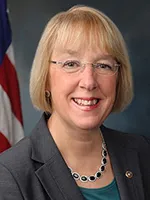Senior Reporter
Speaker Johnson Points to Another Short-Term Funding Bill

[Stay on top of transportation news: Get TTNews in your inbox.]
Two weeks before government funding expires, Speaker Mike Johnson raised the possibility for the House to consider another short-term stopgap measure.
Johnson (R-La.) explained the Nov. 17 funding deadline leaves the chamber with a small window of opportunity for finalizing its fiscal 2024 appropriations process. A two-month extension of an existing continuing funding resolution would avert a partial government shutdown and help finalize the appropriations bills.
“There’s a growing recognition that we’re going to need another stopgap funding measure,” he said.
“I made clear that my initial idea was to extend that to Jan. 15 to get us beyond, sort of, the Christmas rush and the things that typically jam us in the House. I think there’s some good arguments for that,” Johnson told reporters on Capitol Hill on Nov. 2, shortly after the chamber kicked off its consideration of a fiscal 2024 transportation bill.
House Republican leaders intend to schedule a vote on the transportation measure before the week of Nov. 6. The $90.2 billion bill would dedicate nearly $1 billion for the Federal Motor Carrier Safety Administration. For other agencies, the House bill would provide $62 billion for the Federal Highway Administration, $19.5 billion for the Federal Aviation Administration, $14.6 billion for the Federal Transit Administration, $1.4 billion for the Federal Railroad Administration and $1.2 billion for the National Highway Traffic Safety Administration. Tucked in the bill is a provision that would prohibit requirements linked to inward-facing cameras on commercial motor vehicles.

Senior Democrats governing in the minority in the House are pushing back on the Speaker’s funding agenda. House Appropriations Committee ranking member Rep. Rosa DeLauro (D-Conn.) cited a need for bipartisanship in the chamber.
“We should be working together to ensure Congress is able to serve the American people and complete the people’s business safely, securely and efficiently, our political differences notwithstanding,” DeLauro said. “I urge my colleagues on the other side of the aisle to end the charade of forcing through partisan funding bills. We are out of time. I hope my colleagues will come to this realization soon and join me at the negotiating table. Now is the time to find common ground and pass bipartisan funding bills immediately.”
Before the start of the House debate on transportation funding, the Senate on Nov. 1 approved by an 82-15 vote its version of the fiscal 2024 legislation. The $98.9 billion Senate bill would dedicate $20.2 billion for FAA, $16.8 billion for FTA and $3.4 billion for FRA. Like the House bill, the Senate would provide FMCSA with nearly $1 billion for fiscal 2024.

Murray
Senate Appropriations Committee Chairwoman Patty Murray (D-Wash.), noting the transportation bill was included in a legislative funding package, acknowledged the likelihood for considering another continuing resolution.
“We’ve got to work to get these bills signed into law,” Murray said. “And I don’t just mean these investments — but crucial funding in all of our bipartisan appropriations bills. While we may need another [continuing resolution] before our work is done, we absolutely have to remember — long-term CRs are no way to govern, and they certainly are no way to lead.”

Collins
Senate Appropriations Committee ranking member Sen. Susan Collins (R-Maine) said bipartisanship was central to advancing the bills.
“These important bills honor our nation’s veterans; support our farmers, ranchers and rural communities; and improve transportation infrastructure and housing opportunities throughout the United States,” she said.
President Joe Biden signed into law a continuing resolution to avert a shutdown Oct. 1. A requisite for averting a partial government shutdown is enactment of fiscal 2024 measures or another short-term continuing resolution.
Want more news? Listen to today's daily briefing below or go here for more info:




